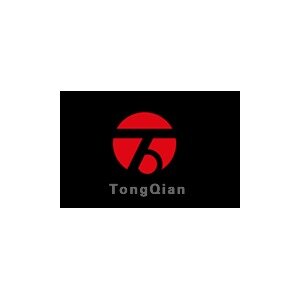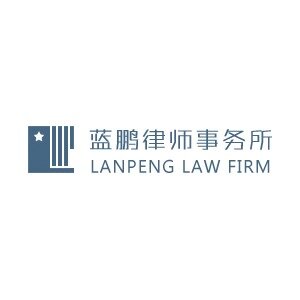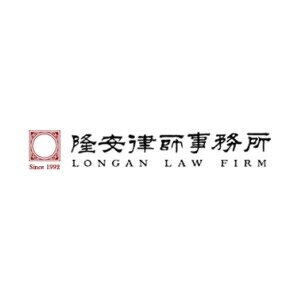Best Sanctions & Export Controls Lawyers in China
Share your needs with us, get contacted by law firms.
Free. Takes 2 min.
Or refine your search by selecting a city:
List of the best lawyers in China
About Sanctions & Export Controls Law in China
Sanctions and export controls are a set of laws and regulations implemented by governments to regulate or restrict transactions, trades, and cooperation with specific countries, entities, or individuals for national security, foreign policy, or economic reasons. In China, the government has steadily developed a regulatory framework to manage these activities more closely, aligning with the country’s growing influence in global trade. China’s approach focuses on safeguarding national security, fulfilling international obligations, and responding to foreign sanctions imposed on Chinese businesses or individuals.
Why You May Need a Lawyer
Seeking legal assistance with sanctions and export controls is crucial for entities involved in cross-border trade, finance, or technology. Common situations where a lawyer’s help is needed include:
- Ensuring compliance with Chinese export control regulations when exporting goods, technologies, or services from China
- Responding to foreign sanctions that affect Chinese companies or individuals
- Managing risks associated with international supply chains that may involve sanctioned entities or countries
- Receiving inquiries, audits, or investigations by Chinese regulators regarding export control issues
- Developing internal compliance programs and employee training concerning sanctions and export controls
- Assisting with licensing applications for controlled items or technologies
- Navigating dual-use goods and technologies that are strictly regulated or prohibited for export
- Advising on merger, acquisition, or investment activities involving foreign entities on sanctioned lists
- Handling internal investigations and self-disclosure to authorities in the event of potential violations
Local Laws Overview
China's legal landscape for sanctions and export controls has developed rapidly in recent years. Key aspects include:
- Export Control Law: Implemented in December 2020, this law establishes comprehensive rules for controlling the export of goods, technologies, and services with both civilian and military uses (dual-use items), military items, and nuclear materials. Individuals and entities must obtain the necessary export licenses for restricted items or face severe penalties.
- Unreliable Entity List (UEL): This mechanism targets foreign entities or individuals that violate normal market transactions with Chinese counterparts or apply discriminatory measures against Chinese entities. Those on the list face restrictions or prohibition on China-related trade or investment activities.
- Blocking Rules: These regulations prohibit the recognition and enforcement of certain foreign sanctions against Chinese individuals or entities that threaten national interests or the legitimate interests of Chinese citizens and organizations.
- Customs Supervision: Chinese customs play a significant role in monitoring and enforcing export control regulations at the border, including inspections, licensing, and compliance checks.
- Penalties: Violations can result in administrative penalties, fines, restrictions on business operations, loss of export privileges, and even criminal prosecution in severe cases.
- Coordination with International Treaties: China is a party to several international non-proliferation regimens and abides by relevant United Nations sanctions.
Frequently Asked Questions
What is the scope of China’s Export Control Law?
The Export Control Law covers the control of dual-use items, military supplies, nuclear materials, and other goods, technologies, services, and data that are related to national security and interests. It applies to any entity or person exporting from China or transferring controlled items to foreign parties.
Who administers export controls in China?
Export controls are administered primarily by the Ministry of Commerce (MOFCOM), together with other agencies such as the General Administration of Customs and departments responsible for military items, nuclear materials, and cybersecurity.
What are “dual-use” items?
Dual-use items refer to goods, technologies, or software that can be used for both civilian and military purposes. These are strictly regulated for export and may require special licenses.
How does the Unreliable Entity List affect foreign businesses?
Being listed as an unreliable entity may restrict or prohibit a foreign business from engaging in China-related trade, investment, or other economic activities. It can also result in restrictions on importing or exporting products to or from China.
What are the penalties for violating export control laws?
Penalties may include administrative fines, suspension or revocation of export licenses, restrictions on business operations, and in severe cases, criminal prosecution.
Can a company in China comply with foreign export control or sanction laws?
Chinese law may prohibit companies from complying with certain foreign sanctions or export controls if they conflict with Chinese laws or threaten national interests. The blocking rules are aimed at addressing this issue.
What steps should companies in China take for compliance?
Companies should identify controlled items, implement internal compliance procedures, provide staff training, monitor transactions for risks, and seek legal advice for complex scenarios or when uncertainties arise.
When is an export license required?
An export license is required when exporting or releasing controlled items, technologies, or services, especially those included in control lists or those that could have a significant impact on national security.
What should I do if my company receives a government inquiry or investigation?
Seek immediate legal assistance, cooperate with the authorities as required by law, ensure thorough documentation, and conduct an internal review to identify and address any potential compliance gaps.
Can individuals be held liable for violations?
Yes, both companies and individuals can be held liable for violations of sanctions and export controls laws, potentially facing administrative or criminal penalties depending on the nature and severity of the breach.
Additional Resources
The following resources and organizations can be helpful if you need legal advice or information:
- Ministry of Commerce of the People’s Republic of China (MOFCOM)
- General Administration of Customs (GACC)
- China Nuclear Energy Association
- State Administration of Science, Technology and Industry for National Defence
- United Nations Security Council Sanctions Committees
- Chinese law firms specializing in international trade, export control, and sanctions compliance
- Industry trade associations, such as the China Chamber of Commerce for Import and Export of Machinery and Electronic Products
Next Steps
If you are dealing with or suspect issues related to sanctions and export controls in China, consider taking the following steps:
- Conduct an internal review of your business’s products, transactions, and supply chains for compliance risks
- Stay updated on relevant Chinese laws, regulations, and government announcements
- Implement or update internal policies and compliance programs tailored to Chinese and international requirements
- Train key staff on recognizing and mitigating risks associated with sanctions and export controls
- Consult a qualified lawyer specializing in Chinese sanctions and export controls for case-specific advice
- Reach out to relevant authorities or trade associations for official guidance, permit applications, or clarifications
- Prepare thorough documentation in case of investigations or regulatory inquiries
Navigating the landscape of sanctions and export controls in China can be complex and challenging, but with proper legal guidance and robust compliance measures, businesses and individuals can effectively manage their risks and obligations.
Lawzana helps you find the best lawyers and law firms in China through a curated and pre-screened list of qualified legal professionals. Our platform offers rankings and detailed profiles of attorneys and law firms, allowing you to compare based on practice areas, including Sanctions & Export Controls, experience, and client feedback.
Each profile includes a description of the firm's areas of practice, client reviews, team members and partners, year of establishment, spoken languages, office locations, contact information, social media presence, and any published articles or resources. Most firms on our platform speak English and are experienced in both local and international legal matters.
Get a quote from top-rated law firms in China — quickly, securely, and without unnecessary hassle.
Disclaimer:
The information provided on this page is for general informational purposes only and does not constitute legal advice. While we strive to ensure the accuracy and relevance of the content, legal information may change over time, and interpretations of the law can vary. You should always consult with a qualified legal professional for advice specific to your situation.
We disclaim all liability for actions taken or not taken based on the content of this page. If you believe any information is incorrect or outdated, please contact us, and we will review and update it where appropriate.
Browse sanctions & export controls law firms by city in China
Refine your search by selecting a city.















